Faith
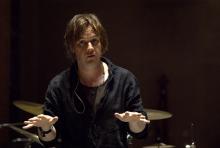
I love Peter Rollins' honesty about his dark night of the soul.
He's popularized a term for the intellectual position accompanying the dark night of the soul: a/theism. I interpret Peter's thought as being in relation to an experience of God's absence. [Note: corrected this paragraph's content from "even coined" to "popularized. Turns out another author coined a/theism."]
I thought it was hilarious that Tony Jones challenged Peter to give up atheism for Lent on the Homebrewed Christianity podcast.
But I took it seriously when Micah Bales, one of my best friends, wrote a post challenging Peter Rollins' Atheism for Lent. You can't give up God because God is a felt presence. (Peter later responded to Micah. And Brian Merritt a piece about who Micah is.) Our conversations got me thinking about what I value about Peter Rollin's voice and what I might challenge about a/theism as I understand it. In order to talk about why a person believes or disbelieves in God, you have to talk about a personal spiritual journey.

On the road, listening to NPR's Terry Gross interview Lawrence Wright, author of Going Clear: Scientology, Hollywood and the Prison of Belief, and having recently spent two hours at the United States Holocaust Memorial Museum seeing the Nazis photographed, not in the usual black and white, but in the full colors of the natural world, it occurred that the human impulse to be part of an exclusive group has deep, powerful roots in religion.
People join "true churches" for this same impulse, a motivation that could not be further from the intention of the Gospel, which, at the heart of its mission, contains the abolition of exclusivity of any kind.
Christ following is not about joining the best club, but about following where Christ leads, straight into the company of every person, no matter their situation or circumstances, in order to be a servant to them, one who lays down his or her life, like Jesus, for the life of the world.
We were made for Communion with God and our neighbor, who Jesus tells us is every person.
Scientology, National Socialism, and other cults, past or present, religious or tribal, are modern forms of Gnosticism. They say, in varying ways, "We have something (usually 'knowledge') not publicly available to everyone and you must join us, submit to us, to participate in our secret." It's important to recognize that this is also an offer of power.

I’ve often heard that Lent is a season of slowing down. Of drawing closer to God, to others, to the wide open world around us. A time for spiritual reflection and inner examination. An opportunity to go a little deeper in trying to figure out Jesus. A time to pause. A time for simplicity.
This Lent, I decided to get back into biking to and from work (in addition to cold showers and placing a penny in the “Suck it Up or Shut Up” jar each time I catch myself complaining).
When I moved across town in June, I said I’d bike once I found a good route, but I weaseled my way out of it for reasons such as having to bike through some sketchy areas by myself, something I was a bit fearful of.
Now a few days into it, I’ve found a route and a rhythm. I got off to a rough start the first day of Lent, biking home drenched by the down-pouring rain. Two cars didn’t see me, causing me slam on the brakes, skidding in the middle of an intersection. Cars passing by splashed water up against me like a small ocean wave. It was cold. It was dark. And I kept making wrong turns, making my time in the rain even longer. I had a “shake your fist at God” moment, muttering things that warranted pennies in the jar, and then managed to put my sopping wet hand back on the handlebar. I thought about the journey that women in Africa make to and from water wells and firewood piles on a daily basis, often risking the possibility of getting raped just to gather these essentials for their families. Surely, I didn’t have it so bad.
And most of us don’t.

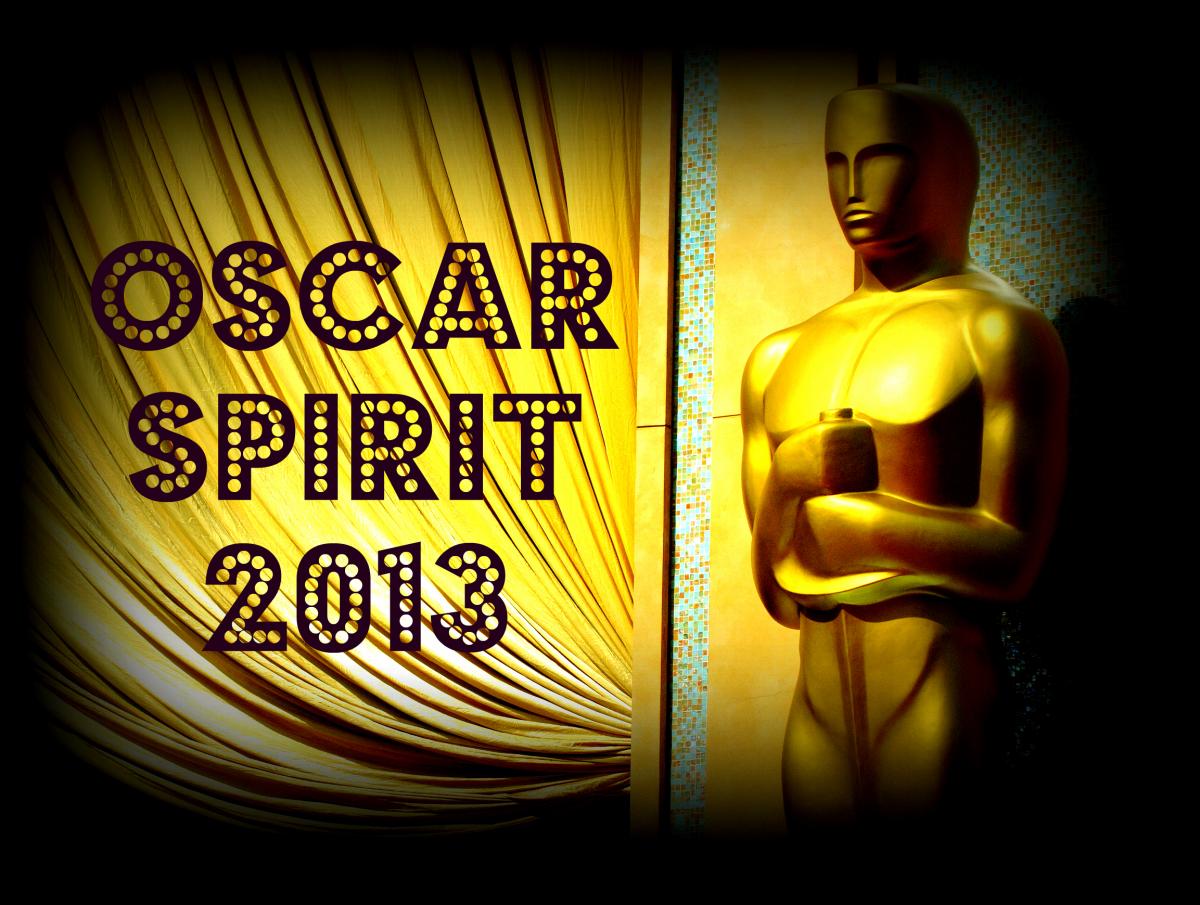 The fragility of life. The servanthood of love. The (im)morality of war. The fundamentals of mercy and justice. The power of grace and forgiveness. The oneness of creation. The personal (and spiritual) toll of climate change. The nature of God and faith. These are some of the spiritual themes explored in the mostly august field of nine contenders for the 2013 Academy Award for Best Picture — Amour, Argo, Beasts of the Southern Wild, Django Unchained, Les Miserables, Life of Pi, Lincoln, Silver Linings Playbook, and Zero Dark Thirty.
The fragility of life. The servanthood of love. The (im)morality of war. The fundamentals of mercy and justice. The power of grace and forgiveness. The oneness of creation. The personal (and spiritual) toll of climate change. The nature of God and faith. These are some of the spiritual themes explored in the mostly august field of nine contenders for the 2013 Academy Award for Best Picture — Amour, Argo, Beasts of the Southern Wild, Django Unchained, Les Miserables, Life of Pi, Lincoln, Silver Linings Playbook, and Zero Dark Thirty.
This week, in the run-up to Sunday's Academy Awards ceremony, we're taking a look at each of the Best Picture nominees, the stories they tell, and the spiritual questions (and answers) they offer. Today we turn our attention to Django Unchained, Les Miserables, and Life of Pi.

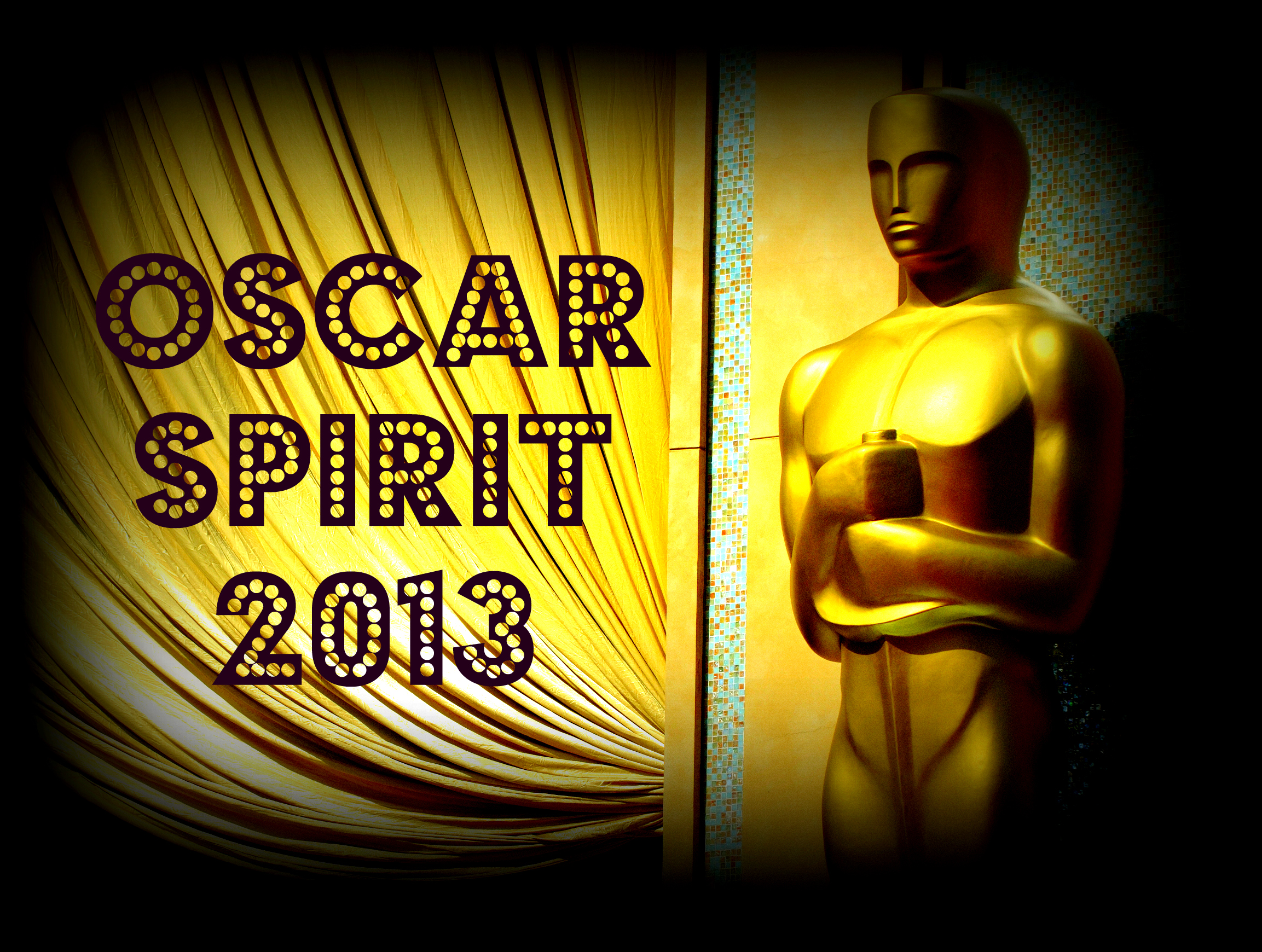 The fragility of life. The servanthood of love. The (im)morality of war. The fundamentals of mercy and justice. The power of grace and forgiveness. The oneness of creation. The personal (and spiritual) toll of climate change. The nature of God and faith.
The fragility of life. The servanthood of love. The (im)morality of war. The fundamentals of mercy and justice. The power of grace and forgiveness. The oneness of creation. The personal (and spiritual) toll of climate change. The nature of God and faith.
These are some of the spiritual themes explored in the mostly august field of nine contenders for the 2013 Academy Award for Best Picture -- Amour, Argo, Beasts of the Southern Wild, Django Unchained, Les Miserables, Life of Pi, Lincoln, Silver Linings Playbook, and Zero Dark Thirty.
2012 was an extraordinary year for film. This year's Best Picture field is perhaps stronger than it's been in recent memory, replete with nuance and substance, each film presenting a uniquely compelling and memorable tale that both informs and reflects our culture, sensibilities, and challenges.
A few of the nominated films employ overtly religious ideas and language (Life of Pi, Les Miserables, Lincoln), while others tackle daunting ethical issues that speak to our deepest identities and values (Argo, Djano Unchained, Zero Dark Thirty), or explore the sacred landscape of friendship, family, and unconditional love (Amour, Beasts of the Southern Wild, The Silver Linings Playbook.)
For the next three days, we'll look at each of the Best Picture nominees, the stories they tell, and the spiritual questions (and answers) they offer.

SALT LAKE CITY — For years, Matt Duff was an uber-Mormon.
At 17, he ran away from home and moved in with the only black Latter-day Saints family in his New England town.
Two weeks shy of his 18th birthday, he joined the Utah-based Church of Jesus Christ of Latter-day Saints.
By 19, he was on a Mormon mission in Denver, and two years later he enrolled at Brigham Young University-Idaho, where he met his future wife, Kylee, a multigenerational Mormon with a winning smile and a guileless faith. The two married in the Salt Lake LDS Temple.
Eight years and three children later, Matt Duff stopped believing.
JUST A FEW dozen pages into Faith, Doubt, and Other Lines I've Crossed, evangelical pastor Jay Bakker pens what may be the best explanation for the Christian emphasis on church community that I've ever encountered. Noting that doubt can be "hard and scary," Bakker writes: "That's why we have one another, why we have community. We can go through those days of doubt together. I wouldn't be who I am today if it weren't for the people who have been there with me as I question everything."
Many writers have grappled with the challenge that doubt poses for religious believers. But in this honest, searching, and ultimately uplifting book, Bakker pulls doubt out of the shadows where many believers wrestle with it on their own and instead presents it as a reality that Christian communities can and should address together.
Bakker's approach to the often-taboo topic of questioning—or, as he puts it, "the sense that faith is crap, life is meaningless, there is no God, the Bible is a fraud, Jesus was just a charismatic man turned mythological figure if he existed at all"—is shaped by his childhood in a Pentecostal environment that left no room for doubt. As Bakker ruefully notes in the book's introduction, "I will probably be 80 years old and still introduced as Jay Bakker, son of Jim and Tammy Faye." That unusual background only provides the impetus, however, and not the substance for this book, which reads mostly as the stream-of-consciousness meditation of a man pushing and pulling at his faith to see if it holds up.

C.S. Lewis described himself as a dinosaur as he lived in a cultural landscape that seemed to change before his eyes.
I don’t feel like a dinosaur, but I do feel like a disembodied voice crying in the wilderness as I struggle, like a fish swimming upstream, to believe that the Gospel is real and solid and still matters.
It’s not that cynics and agnostics have convincing arguments – though some do.
And it’s not as if Faith itself has lost its power and edge – because it hasn’t.
Perhaps it’s true in every age, but it certainly seems more true now, that many of those who call themselves believers, believe and live as if they believe a different Gospel altogether.
The contradiction is so thorough, it must be deliberate.

WASHINGTON — Longtime White House aide Joshua DuBois, who heads the White House office focused on the intersection of religion and public policy, will step down on Friday, President Obama announced Thursday.
Obama, speaking at the National Prayer Breakfast, asked DuBois to lead his White House Office of Faith-based and Neighborhood Partnerships in 2009 when the Pentecostal reverend was 26, and hoped DuBois could sustain the ties he had helped forge between Obama and religious groups during the 2008 presidential campaign.
DuBois will teach at New York University starting later in the year, according to White House officials, and also plans to write a book based on the inspirational messages he sent to Obama daily.

Invoking once again the spirits of Lincoln and Dr. King — and reemphasizing his own personal faith — President Barack Obama called for humility and a focus on common ground in his remarks at today’s National Prayer Breakfast at the Washington Hilton.
Citing the divisions that exist in Washington, Obama said our charge as citizens, and as leaders in government, is “to find the common ground that allows for us as a nation, as a people, to take real and meaningful action,” he said.
He reflected on the humility shown by Abraham Lincoln and Dr. Martin Luther King, Jr., who both turned to their bibles — both of which Obama used at his swearing-in ceremony last month — finding solace in the words of scripture amid the divisions of their times.
Obama recalled his own reflection and study, saying he often searches scripture to figure out “how to be a better man as well as a better president.” His words build on previous allusions to his personal faith journey. He has always insisted that doubt is part of faith, but faith comes with constant seeking.
“Faith is something that must be cultivated. Faith is not a possession. Faith is a process,” the president said, adding later that, “While God may reveal his plan to us in portions, the expanse of his plan is for God and God alone to understand.”
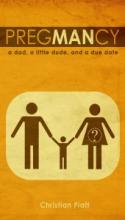
Mattias: “Dad, I forgive you.”
Me: “But I didn’t do anything wrong.”
Mattias: “That’s okay. I forgive you anyway.”
— Mattias, 5 years, 1 month
I’m a big, gigantic jerk of a dad.
My son, Mattias, is a charmer. As introverted and crowd-averse as I am, he feeds off the energy of a group. His uncle Matt calls him “Slumdog Millionaire” because he’s convinced that, if you dropped him in the middle of Calcutta with nothing but the clothes on his back, he’d be running the joint inside of six months.
This particular day, Mattias was working on a smaller scale, charming his uncle Joe out of five bucks over a family dinner. The problem is that, about half the time, he loses the money before it makes it into his bank. So I offered to carry it for him while we were out running some errands later on.
He asked for it back after a while, and I explained that if he lost it, there were no refunds. I figured, though, that even losing the money was a lesson worth learning.
Sure enough, that evening at dinner, he dug into his pocket for his cash and found nothing.

I’ve been reading with interest about the “nones” and the increasing number of people who identify themselves as SBNR — spiritual but not religious. Though I try not to get sucked down Internet rabbit holes, I have to admit this one’s got my number. I think it’s because I identify with both groups in some real ways.
Like many people I know, I stand in the gap.
As a Catholic Christian, I’ve watched countless friends and neighbors walk out of the church. Some linger at the door on their way out with a wistful look, wishing things could be different. Others hit the ground running and never look back. I understand both exit strategies and have been tempted to join them, but I haven’t, not yet. I am spiritual, but also still religious, albeit reluctantly so at times.
As much as I appreciate the conversations that are going on, we “religious” aren’t going to change anyone’s minds by talking about it, by beating our breasts, or wringing our hands. The “nones” aren’t going to walk back into church, because someone tells them they should, or because it would be good for them. Shoulds are rarely effective with adults and if churches were actually good for them, in some tangible way, the “nones” would still be there in the first place.
I think the only way for churches to reverse the exodus of the “nones” is by becoming different churches.

In the church of my childhood it was taught that the “age of accountability” was somewhere around 12. To hit the age of accountability was to, like, spiritually go off of your parents’ insurance. At age 12 the clock starts ticking, spiritually speaking; you know right from wrong now and because of this you are accountable for every time you screw up. And if you sin knowing right from wrong and then die before you chose to be baptized, you might burn in Hell for eternity. So age 12, as you can imagine, is when kids start choosing to get baptized. The lag time between entering the age of accountability and having your slate wiped clean through baptism can be terrifying. Many of us kids would pray not to die in a car crash before we were baptized, like other people pray to not get sick before their employee benefits kick in. So basically, 12-year-old Church of Christ kids experience a wave of devotion like a Great Awakening comprised only of sixth graders. And this is partly because we were all terrified of the devil and temptation and sin. Since, as we were told, all the bad things we’d done may have been washed clean in baptism, but the devil was waiting right outside the baptistery to try and get us to be bad again.

Much has been made of the "rise of the nones" — that is, the increasing percentage of Americans who identify with no religion. It is a fascinating and undeniable trend, and one that should catch the attention of religious leaders.
I know quite a few Nones. Few of them were raised in the absence of any faith tradition. Instead, most were part of a Christian denomination at some point, but consciously made the decision to leave. What interests me about their stories is this common thread: The majority left Christianity because of the attitudes of a person, and that person was not Jesus. It was an overbearing parent, or a judgmental minister, or a congregant who told them they did not belong because they were gay or they were questioning or they had conflicted ideas. In many cases, it was a combination of these types of influences.
Something is wrong when we drive so many people away. I think a big part of that something is arrogance.
This raises the question, then, of how to be a public Christian, even an evangelical Christian (which is how I identify myself), without running the risk of arrogance.
I don't embody the ideal I'm about to describe in answer to that question, but I know some people who do. These are the people who made me want to be a Christian. What I see in them are three key attributes: They are authentic, unashamed and honest.

One of my favorite views of Charm City right now is entering into the downtown area from the 395 off-ramp. Our city is painted with Ravens spirit — purple lights dancing on skyscrapers, "Go Ravens!" posters taped to city windows, and my favorite: the billboard that simply said "WOW" after the Ravens' win Sunday over the Patriots. In fact, as I sit down to write this at the Towson Public Library, a woman just pointed out that the bookshelf next to me contains an entire collection of books with purple covers, complete with a border of purple stars cut out of construction paper.
Purple has become a unifying topic, bringing complete strangers together in conversation. All week at work, I've asked patients, "Did you see the game?" or I'd see someone wearing a purple scarf and fist bump in the air an amiable, "Go Ravens!" I think this is one of the beautiful things about sports: its ability to bring people together irrespective of socioeconomic status, race or political beliefs.
But I can't help but notice something else about all this celebration — something that disturbs me.
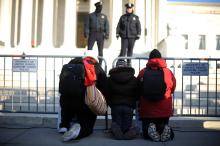
This is a memorable week: on Monday the inauguration of President Obama on the holiday honoring Martin Luther King, Jr., and today, the 40th anniversary of the Roe v. Wade decision by the Supreme Court. Some people will celebrate all three with thanksgiving. Others will find nothing to celebrate – especially the decision of January 22, 1973 that struck down state laws banning abortion.
Another Inaugural Address
On Sunday, there will be another inaugural address – this one by Jesus at the beginning of his ministry (Luke 4: 14-21). After 40 days in the wilderness facing the devil, Jesus returned to his hometown of Nazareth and went to the synagogue. He took his place at the reading desk and someone handed him the scroll of Isaiah. The text says he “found the place where it was written.” Jesus read the text, handed the scroll back to the attendant and sat down. Everyone was looking at him – all those hometown folks who knew him as a child. Then Jesus said, “Today, this scripture has been fulfilled in your hearing.” That must have been a shock because the Isaiah text Jesus read proclaims more than anyone could see: good news to the poor, release to the captive, recovery of sight to the blind, freedom for the oppressed – and the year of the Lord’s favor. The hometown folks would have recognized the year of Jubilee when debts would be cancelled, slaves set free and the land allowed to rest. Jesus was making a very big claim!
How shall we interpret what Jesus said in light of our deep divisions over abortion? Is the fetus in the womb oppressed or is the pregnant woman denied choices oppressed? Is the woman captive to laws that restrict her access not only to abortion but to contraceptives? Or is the fetus a captive threatened with death? We have grown so accustomed to shouting slogans at one another that it has become almost impossible to have faithful conversations across our differences.

A presidential inauguration is by tradition the grandest ritual of America’s civil religion, but President Obama took the oath of office on Monday in a ceremony that was explicit in joining theology to the nation’s destiny and setting out a biblical vision of equality that includes race, gender, class, and, most controversially, sexual orientation.
Obama’s speech, his second inaugural address, repeatedly cited civic and religious doctrines — namely the God-given equality extolled by the “founding creed” of the Declaration of Independence — to essentially reconsecrate the country to the common good and to the dignity of each person.
It was a faith-infused event that recognized both the original sins as well as the later atonements of America’s history, especially on race, which was front and center as the nation’s first African-American president took the oath on the holiday commemorating the Rev. Martin Luther King, Jr.
And Obama and other speakers vividly traced the nation’s tortuous path from slavery to civil rights — from the Emancipation Proclamation 150 years ago to the March on Washington 50 years ago, the latter presided over by King.
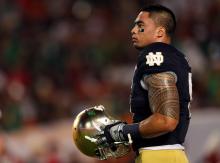
Listen, I’m not here to bash Manti. I’m not here to ridicule or mock him. I’m not even suggesting that Manti is lying or that his statement is not accurate but we can all agree that the whole story is absolutely bizarre and the total truth has yet to be fully revealed. But because I’m a believer in people – and more so – because I believe in the power of redemption, reconciliation, and restoration, I want to see Manti do well – not just as a football player – but as a man … as a human being … and as someone who often speaks of God.
If I were Manti’s pastor …
While more details will emerge in the future, I wondered what kind of advice I would give him if I were Manti’s personal pastor. (Manti, being Mormon, is supposedly a deeply religious person.) Here are the four pieces of advice I’d give him.
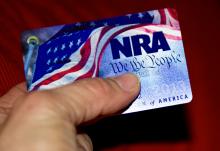
Tuesday was the 84th birthday of Rev. Dr. Martin Luther King, Jr. I don’t know about you, but I miss his words, so I offer a few. King said “people often hate each other because they fear each other, they fear each other because they don’t know each other, they don’t know each other because they cannot communicate, they cannot communicate because they are separated.” I would add to his words: ‘and in that separation they seek guns.’ As an evangelical Christian, I’m going to make this theological.
Wayne LaPierre, executive vice president of the National Rifle Association, said this as his response to the massacre of children at Sandy Hook elementary in Newtown, Conn.: “the only thing that stops a bad guy with a gun is a good guy with a gun.”
That statement is at the heart of the problem of gun violence in America today — not just because it is factually flawed, which of course it is, but also because it is morally mistaken, theologically dangerous, and religiously repugnant.

President Obama will publicly take the oath of office on two Bibles once owned by his political heroes, Abraham Lincoln and the Rev. Martin Luther King Jr. One Bible was well read, but cited cautiously, the other granted scriptural sanction to the civil rights movement.
When Obama lifts his hands from the Bibles and turns to deliver his second inaugural address on Monday (Jan. 21), his own approach to Scripture will come into view. Characteristically, it sits somewhere between the former president and famous preacher.
His faith forged in the black church, Obama draws deeply on its blending of biblical narratives with contemporary issues such as racism and poverty. But like Lincoln, Obama also acknowledges that Americans sometimes invoke the same Bible to argue past each other, and that Scripture itself counsels against sanctimony.
Obama articulated this view most clearly in a 2006 speech, saying that secularists shouldn’t bar believers from the public square, but neither should people of faith expect America to be one vast amen corner.
“He understands that you can appeal to people on religious grounds,” said Jeffrey Siker, a theology professor at Loyola Marymount University in California who has studied Obama’s speeches. ”But you also have to be able to translate your case into arguments that people of different faiths, or no faith, can grasp.”